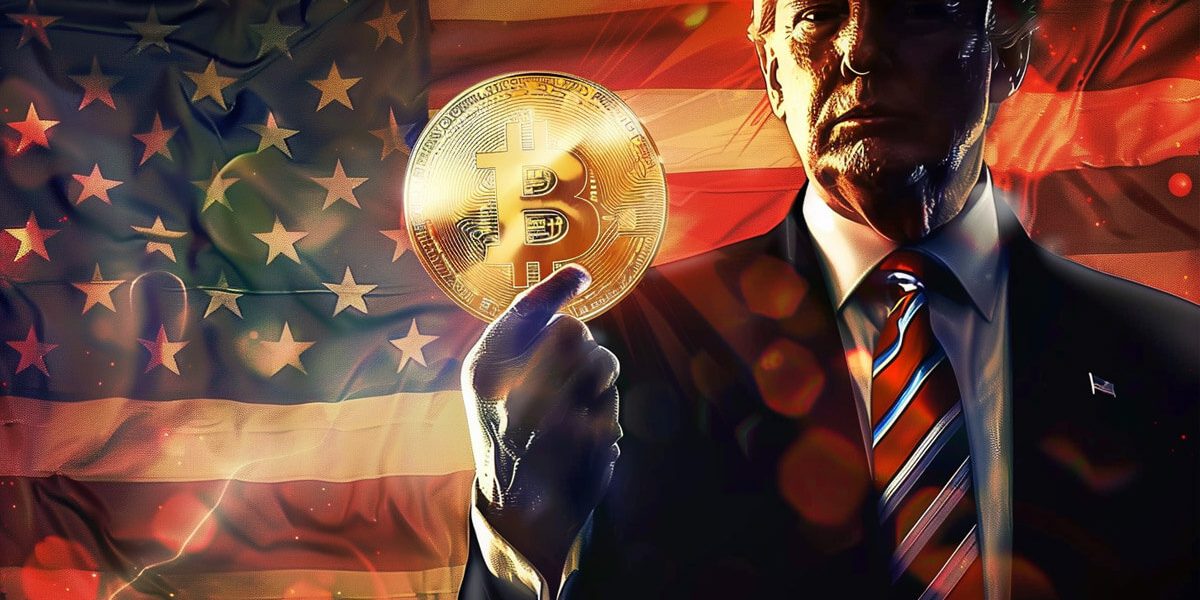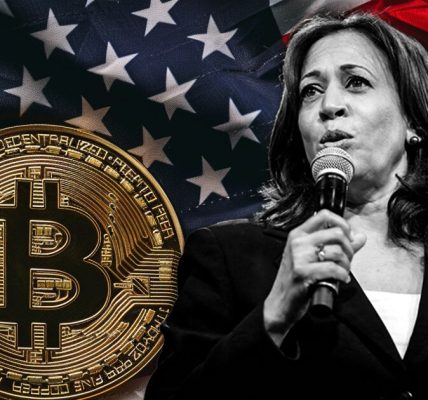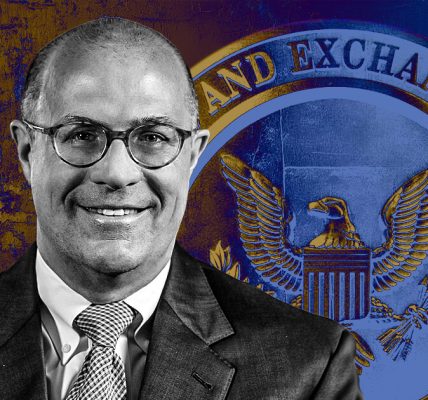

The crypto community responded enthusiastically when Donald Trump emerged victorious in the US election. As someone deeply invested in the ideals of blockchain and decentralized systems, I find myself navigating a complex mix of hope and healthy skepticism.
Trump’s recent pro-crypto rhetoric has undeniably ignited optimism within the industry, but it also raises questions about crypto’s future stability and genuine independence.
The Industry’s Enthusiasm Amid Partisan Issues
Trump’s promises to transform the United States into a “crypto capital” and his public endorsements of Bitcoin have resonated strongly with many in the industry.
Accepting Bitcoin donations, promising to free Ross Ulbricht and fire Gary Gensler while suggesting the creation of a national Bitcoin reserve all signal a potential shift toward a more favorable regulatory environment. These developments are undeniably exciting for an industry that has long grappled with uncertainty and sought mainstream legitimacy.
However, a look at Trump’s history prompts a degree of healthy caution as his track record in business and politics often reflects decisions that serve immediate interests, sometimes at the expense of long-term considerations. For example, unlike most other Presidents before him, Trump did not divest from his business interests while in office, leading to claims of over 3,700 conflicts of interest during his four-year term.
Though now, one of his businesses is in the DeFi space.
We may all benefit from any perceived self-serving moves that boost his World Liberty Finance project. He also has an NFT collection that the SEC may disapprove of under Gary Gensler. Thus, an overhaul of how NFTs are viewed from a regulatory standpoint would also benefit Trump’s personal and commercial interests.
So, is his newfound support for crypto a genuine commitment, a strategic move to capitalize on the industry’s momentum, or for personal gain? Ultimately, do we in the crypto industry care either way?
If something is done for selfish reasons, but millions enjoy the benefits, does that make it wrong?
Ultimately, the risk of any politician campaigning to court Bitcoin voters lies in the possibility that the support may be fleeting, potentially leading to instability or abrupt policy shifts that could hinder the industry.
Remember, he spent much of his campaign discussing “crypto” alongside Bitcoin. He personally owns Ethereum and an Ethereum NFT project but does not hold Bitcoin.
So, is Donald Trump’s next presidency better for altcoins than Bitcoin?
While I am not an outright Bitcoin Maxi, I feel that Bitcoin needs to be front and center of conversations, and Trump needs people around him who genuinely understand Bitcoin. Interestingly, a recent tweet from US Major and Softwar author Jason Lowery indicates that he may be moving to DC to do that.
Will Trump continue to heed David Bailey and others’ advice on Bitcoin, or will he align more closely with ally and sometime Bitcoin-skeptic Elon Musk?
How will Trump continue to embrace Bitcoin and crypto?
If Trump follows through and pushes for holding Bitcoin on the United States balance sheet—a task he cannot do alone—it will undoubtedly improve the US’s position among central banks worldwide. If the US moves first in stockpiling Bitcoin, we could see a groundswell of other countries looking to follow suit.
Ridding the SEC of Gary Gensler and replacing him with a pro-crypto official could usher in a new era of tokenized assets, unlike anything we’ve seen before. However, Singapore’s “pro-crypto” regulatory environment shows that this does not necessarily lead to increased decentralization. Singapore has a system that favors regulated, KYC-compliant stablecoins rather than a free and open Bitcoin-centric ecosystem.
A pro-crypto Trump presidency must set a standard for what blockchain truly represents—access to finance for all without centralized control. Achieving this could inspire other regions, such as Singapore and the EU, with increasingly stringent regulations, to rethink their approach.
Should Bitcoin achieve what many dream of—becoming the world’s reserve currency—this is unlikely to be good for the dollar. However, the more Bitcoin the United States owns, and possibly Trump himself, the better for those who believe in Bitcoin’s ability to replace the traditional financial system.
In my opinion, Trump buying Bitcoin personally would be one of the most bullish events possible to gauge what the next four years will bring.
Politics and Bitcoin
I still believe Bitcoin is and should remain bipartisan, with no figure held in higher regard than others. Humans are flawed, and Bitcoin’s code is far less fragile. United States citizens must ensure Trump follows through on his promises for Bitcoin and the broader crypto industry.
Trump promises
Like any politician, during his first presidential campaign, he made many promises—some fulfilled, others not… though, to be fair, the same can be said of almost all elected officials.
I’ll briefly recount the failures and successes of his first presidency.
In 2016, he failed to repeal and replace the Affordable Care Act, leaving millions without health insurance. He did not protect pre-existing conditions as promised, supporting legal efforts to repeal the ACA. His promised tax cuts primarily benefited the wealthy and corporations rather than the middle class.
The border wall with Mexico remained largely unbuilt, with only 47 miles of new barriers constructed where none existed before, and Mexico did not pay for it.
Trump’s pledge to eliminate the federal deficit went unfulfilled; instead, it increased by more than 60%. However, it’s arguably unfair to blame him entirely without acknowledging the pandemic’s role.
His vow to revive the coal industry fell short, with coal jobs continuing to decline during his administration. Trump also failed to release his tax returns despite repeated promises to do so.
These unfulfilled pledges demonstrate the gap between campaign rhetoric and actual policy outcomes, underscoring the importance of scrutinizing any political Bitcoin promises.
Trump achievements
Still, President Trump did achieve several notable accomplishments during his 2016 term. In criminal justice reform, he championed the bipartisan First Step Act, which allowed for the earlier release of some prisoners and reduced specific punitive sentences.
The Trump administration also saw record-low unemployment rates for various demographic groups, including African Americans, Hispanic Americans, and women. In foreign policy, Trump brokered normalization agreements between Israel and several Arab states.
Trump signed the Tax Cuts and Jobs Act, significantly reducing corporate tax rates and providing temporary benefits for individuals. He successfully appointed three Supreme Court justices and 226 federal judges, reshaping the judiciary for years.
Economically, the stock market reached record highs during his tenure, with the Dow Jones Industrial Average closing above 30,000 for the first time. Despite my personal criticism, these achievements represent tangible policy outcomes from Trump’s presidency.
So, let’s hold him accountable for his promises and ensure Bitcoin performs more like the Dow Jones than the border wall over the next four years.
Beyond Politics—The True Potential of Blockchain and Bitcoin
Stepping back from the US political spotlight, I want to focus on the foundational principles that make blockchain and Bitcoin revolutionary. I believe in the decentralization of finance for reasons beyond self-serving “number go up” motivations.
No political party in existence is advocating for the true potential of blockchain.
Yet, I envision a society where decentralized governance replaces bloated bureaucracies, enabling direct participation and ownership through DAO-like systems. Such a model could facilitate social services like healthcare, education, food, housing, and internet access without the inefficiencies often associated with big government. Further, collective ownership through blockchain removes risks of authoritarian control.
Through blockchain-based systems, the free market and private ownership can exist alongside more perceived left-leaning ideals of free healthcare and universal basic income if we remove the bloat of traditional finance and bureaucracy.
I believe blockchain is the route to self-sovereign freedom, removed from the fiat shackles of today’s tradFi world. It can do much more than simply make early investors wealthy.
As a hard money asset backed by energy, Bitcoin offers a path toward responsible fiscal policies and economic stability—contrasting sharply with fiat currency’s reliance on government resolve and susceptibility to inflation.
A pro-crypto Republican president is entering the White House, but Bitcoin (and crypto at large) is not Republican, Democrat, Labour, Conservative, or Green.
Bitcoin is freedom money, and freedom means people are free to reach their potential.
All people.
The future
While Trump’s pro-crypto stance will likely bring short-term benefits, the crypto community must maintain its independence from any single political figure.
Our true strength lies in the decentralized nature of crypto and its ability to empower individuals, regardless of who holds office. Our focus should remain on building resilient systems that promote fairness, transparency, and self-sovereignty.
For now, I am cautiously optimistic about what Trump’s presidency could mean for crypto. His support might catalyze positive changes, but we must stay vigilant and committed to the core ideals that define this movement.
Bitcoin cannot be another campaign promise left unfulfilled by politicians.
This is a monumental first step for crypto and Bitcoin – but words are just that. From Jan. 20, we need action, and the industry must not accept anything less than what was promised.
Eventually, by concentrating on the transformative potential of blockchain technology at large, we can strive toward a more decentralized and equitable society that transcends the ebb and flow of political tides.
Mentioned in this article




